Every clinical documentation and coding specialist aims to capture a comprehensive patient, the CDI departments carefully review documentation, question suppliers, and examine records. All medical coders produce rich, comprehensive code sets to capture the entirety of the clinical picture.
In the healthcare sector, billing and coding are crucial to support compliance and ease effective reimbursement procedures. A useful solution provides all-inclusive services to simplify medical billing and coding processes. Therefore, healthcare practitioners can easily navigate complicated regulatory frameworks while maximizing the revenue cycle by using innovative technology.
With an advanced understanding, they can better record and code medical treatments, enabling correct invoicing and faster reimbursement. This will help them improve patients financial experience and enhance patient care.

Billing and Coding Regulations 101
Federal, state, and professional organizations set medical billing code regulations to guarantee accuracy in the reimbursement process. The organizations that offer regulations include the FCA (False Claims Act), the ACA (Affordable Care Act), and HIPAA. Here’s how laws protect patient data:
HIPAA – Health Insurance Portability and Accountability Act
HIPAA helps in protecting private patient information from abuse and illegal access, safeguarding patient privacy and health information security. The regulations serve data handling and transmission rules, which have an impact on billing and coding operations, data security, and electronic health records.
Affordability Care Act (ACA)
The ACA has influenced billing and coding practice by expanding coverage, implementing insurance reform, and instituting changes to improve healthcare quality and affordability. The ACA needs transparency and accountability in billing and coding, so healthcare providers must ensure precise pricing and coding practices.
The Affordable Care Act (ACA) has an impact on healthcare repayment and revenue recycling by forcing the sector to adopt value-based models, which help in prioritizing and lowering costs while improving patient outcomes.
False Claims Act (FCA)
Government programs are designed to stop healthcare fraud and abuse are punishable under the FCA. Among the crucial anti-fraud instruments and enforcement procedures proved by the FCA are financial penalties, possible exclusion from government programs, and whistle blower provisions.
The emphasizes how important it is to make claims accurately and to follow the law and ethical billing procedures. It ensures the use of public funds and supports the credibility of the healthcare reimbursement system.
Importance Of Billing and Coding Regulations
Accurate and compliant billing and coding practices are financially helpful to healthcare organizations in terms of revenue creation, reimbursement, and stability. The advantages of putting these guidelines into effect are as follows:
Ensuring Accurate Reimbursement
Coding and billing rules are essential to guaranteeing that medical professionals are paid appropriately.
By reducing errors and guaranteeing uniform billing practices, they provide a dependable means of enhancing medical procedures and services.
Healthcare providers can keep their financial standing, perfect payment rates, and avoid costly delays and denials by adhering to these guidelines.
Minimizing Fraud and Abuse in Healthcare Billing
These regulations also make it less probable for practitioners to overpay for treatments, misleading procedures, or bill for services that were never performed.
By following these guidelines, medical professionals protect the integrity of the healthcare system and guarantee that patients receive the care they need without engaging in billing practices.
Creating Financial Stability
The financial stability of healthcare organizations depends on whether billing and coding regulations are enforced.
Adhering to these standards allows healthcare providers to perfect their reimbursement rates and prevent exorbitant fines and penalties.
This helps healthcare companies build a solid financial foundation.
Legal Consequences of Non-Compliance
To ensure that medical professionals are paid properly for the services they provide, billing and coding regulations are needed. These regulations offer a consistent way to show medical procedures and services, lowering errors and ensuring consistent billing practices throughout the industry. Healthcare providers can perfect payment rates, prevent expensive delays and denials, and preserve their financial standing by following these rules.
Current Trends and Challenges
In the last few years, there has been an increase in value-based core models and the incorporation of big data solutions into healthcare reimbursement systems.
With this, the rise in patient healthcare has presented unique challenges in coding and billing. The healthcare system needs a new set of rules to guarantee accuracy and compliance in the reimbursement process. Here are some of the current trends in medical billing:
Evolving Healthcare Models
Value-based care and patient healthcare are two examples of new healthcare delivery models that affect billing and coding.
With these new methods of care delivery and payment, revisions to the current billing process and system are needed such as new medical billing codes, correct documentation of virtual services, and the integration of quality metrics into the reimbursement process.
Implications of ICD-11-CM Coding System
There are significant ramifications when switching from the ICD-10-CM to the ICD-11-CM coding system. The improved clinical record detail provided in the system will affect the coding and reimbursement procedures.
This new coding system will improve data collection processes, tracking public health trends, and detecting fraudulent activities. However, there will also be challenges due to the transition, such as staff training requirements and potential delays in the revenue cycle.
Regulatory Updates and Compliance Challenges
It may be challenging for healthcare practitioners to stay up to date with the continuous updates to regulations, such as procedure medical billing code standards.
It’s crucial for practitioners to be knowledgeable and put efficient compliance procedures into practice, to prevent possible financial penalties, legal ramifications, and brand damage.
Businesses need to consistently distribute funds for process improvement, monitoring, and training to follow these ever-changing regulations.
Technological Advancement in Billing and Coding
Coding and billing are being transformed by artificial intelligence and automated coding tools in EHRs. These technologies bring up moral concerns about privacy, data security, and an over-reliance on automation that could result in a loss of human oversight and expertise.
Healthcare organizations must weigh the benefits and drawbacks of deploying these innovative technologies while making sure that all protocols adhere to ethical and legal standards.
Ethical Consideration in Billing and Coding
To prevent fraudulent billing practices that can affect the patient’s financial and physical well-being, healthcare practices must take these ethical considerations into account:
Integrity and Transparency in Billing Practices
To ensure patients receive the best care at a reasonable cost, billing and coding must be honest and transparent. For example, invoices for healthcare services should be truthful and open. Coding, billing, and filing claims require precise and correct paperwork.
Inaccurate billing practices could result in false claims, penalties, court cases, or license revocation.
Patient-Centric Approach to Billing and Coding
Healthcare professionals should use a patient-centered approach to provide the best care with less financial burden, and while educating patients about the billing and coding process.
Healthcare providers should patients resolve any billing disputes or confusion by giving exact billing and coding details.
Safeguarding Patients’ Rights
Patient billing information must be protected during the billing and coding process to ensure patient privacy.
Patients should be informed of their rights and educated on how to file a complaint if they believe there has been fraudulent billing or a breach of privacy.
Struggling Ambulatory Surgery Center Improves its Monthly Collections by 40%
Conclusion
Regulations about medical billing codes are important for the healthcare sector. As it is crucial to keep ethical standards and guarantee correct reimbursement, and financial stability.
So, value-based care and technology advancements are two of the many trends that are causing constant change in the healthcare industry. Building trust and upholding patient rights requires a patient-centered strategy, openness, and ethical considerations.
In proving a healthcare system, healthcare professionals must make sure to remain informed, embrace technological advancements responsibly, and uphold ethical standards.
Healthcare providers can get help from Jindal Healthcare which will help in navigating the complex world of healthcare billing and coding.
By adopting innovative technology, bonding to moral principles, and emphasizing on patient-centered approach, Jindal Health Care guarantees right reimbursement, reduces the risk of fraud, promotes financial stability, enhances patient care, and keeps the integrity of the healthcare sector. Technology, ethics, and regulatory compliance must coexist peacefully as Jindal Healthcare has helped hundreds of clients in achieving it.








